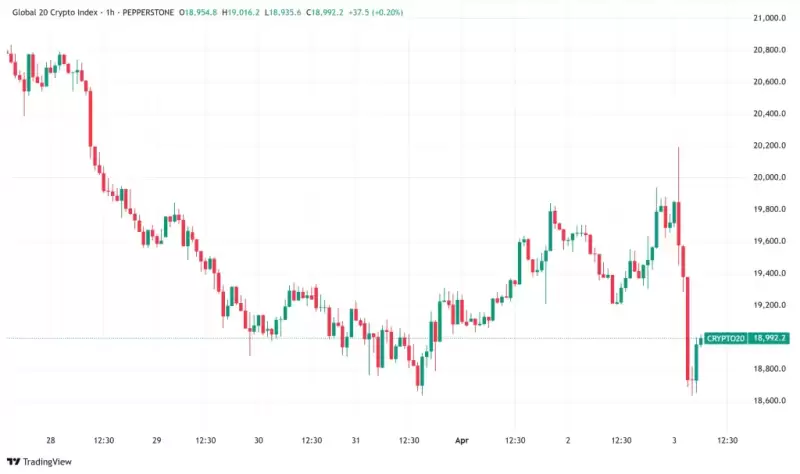 |
|
 |
|
 |
|
 |
|
 |
|
 |
|
 |
|
 |
|
 |
|
 |
|
 |
|
 |
|
 |
|
 |
|
 |
|
近年來,中央銀行和金融機構出現了越來越多的研究,重點關注比特幣及其對貨幣政策的潛在影響。

A Bitcoin change store is seen in Tel Aviv, Israel on December 30, 2022. (Photo by Beata Zawrzel/NurPhoto via ... [+] Getty Images)
2022 年 12 月 30 日,以色列特拉維夫的一家比特幣交易商店。
In recent years, a growing body of research has emerged from central banks and financial institutions, focusing on Bitcoin and its potential impact on monetary policy. These studies, issued by organizations such as the Minneapolis Federal Reserve, the European Central Bank (ECB), and the International Monetary Fund (IMF), highlight a key theme: the disruptive nature of Bitcoin and other cryptocurrencies could limit the ability of central banks to perform their traditional role in managing economies. Advocates have argued that Bitcoin could be an alternative to central banking, are central banks finally recognizing Bitcoin as a potential threat?
近年來,中央銀行和金融機構出現了越來越多的研究,重點關注比特幣及其對貨幣政策的潛在影響。這些研究由明尼阿波利斯聯邦儲備銀行、歐洲中央銀行(ECB)和國際貨幣基金組織(IMF)等組織發布,強調了一個關鍵主題:比特幣和其他加密貨幣的顛覆性可能會限制央行的能力發揮其在管理經濟方面的傳統角色。支持者認為比特幣可以成為中央銀行的替代品,中央銀行最終是否承認比特幣是潛在威脅?
Can Bitcoin Lead To Inequality?
比特幣會導致不平等嗎?
The European Central Bank’s researchers have published two papers on Bitcoin, both of which offer strikingly different perspectives. The first, published in the wake of the FTX collapse in 2022 while Bitcoin was trading at $16,000 - titled “Bitcoin’s Last Stand” - portrays Bitcoin as being a failed monetary experiment in its final death throes. In 2024, with Bitcoin trading at nearly $70,000, the same authors at the European Central Bank published a paper acknowledging a different reality.
歐洲央行的研究人員發表了兩篇關於比特幣的論文,兩篇論文都提供了截然不同的觀點。第一篇文章是在2022 年FTX 崩潰之後發布的,當時比特幣的交易價格為16,000 美元,標題為“比特幣的最後一站”,將比特幣描繪成一個失敗的貨幣實驗,處於最後的垂死掙扎。 2024 年,比特幣交易價格接近 7 萬美元,歐洲央行的同一位作者發表了一篇論文,承認了不同的現實。
This latter paper argues that Bitcoin’s existence and continued appreciation has a significant impact on wealth distribution. According to the paper, when Bitcoin's price rises, early Bitcoin holders get wealthier. However, since Bitcoin doesn't produce anything or increase economic output, this increased wealth and consumption by early holders must come directly from reduced consumption by everyone else in society.
後一篇論文認為,比特幣的存在與持續升值對財富分配有重大影響。論文稱,當比特幣價格上漲時,早期比特幣持有者會變得更加富有。然而,由於比特幣不會產生任何東西或增加經濟產出,早期持有者財富和消費的增加必須直接來自社會中其他人消費的減少。
This means that when early Bitcoin holders spend their profits on goods and services, they are using purchasing power that has been taken from non-holders and people who bought Bitcoin later. This reduction in people’s purchasing power happens even if Bitcoin's price keeps going up forever and even impacts individuals who don’t buy Bitcoin at all.
這意味著,當早期的比特幣持有者將利潤花在商品和服務上時,他們使用的購買力是從非持有者和後來購買比特幣的人那裡奪走的。即使比特幣的價格永遠上漲,人們購買力的下降也會發生,甚至影響那些根本不買比特幣的人。
The key insight is that Bitcoin wealth doesn't create new economic value - it just redistributes existing wealth. Even in the most optimistic scenario where Bitcoin's price keeps rising, it makes early holders richer only by making everyone else poorer in relative terms. The authors argue this is different from gains in stocks or property values, which can reflect and contribute to actual increases in economic productivity and output. With Bitcoin, the gains are purely redistributive since Bitcoin itself doesn't produce anything or increase economic capacity.
關鍵的見解是,比特幣財富不會創造新的經濟價值——它只是重新分配現有的財富。即使在比特幣價格持續上漲的最樂觀的情況下,它也只能透過讓其他人相對而言變得更窮來讓早期持有者變得更富有。作者認為,這與股票或房地產價值的成長不同,後者可以反映並有助於經濟生產力和產出的實際成長。對於比特幣來說,收益純粹是再分配性的,因為比特幣本身不會產生任何東西或增加經濟能力。
This ECB viewpoint mirrors a longstanding critique made by Bitcoin proponents regarding central banks. The Cantillon effect, named after 18th-century economist Richard Cantillon, suggests that central banks, by printing money, disproportionately enrich those who are closest to the money supply (such as banks and wealthy individuals), while the rest of the population sees diminished purchasing power. When new money enters the economy, it doesn't affect all prices simultaneously - instead, the first recipients of the new money (typically financial institutions) can spend it before prices rise, while those furthest from the money supply (typically ordinary citizens) only experience the resulting inflation.
歐洲央行的這一觀點反映了比特幣支持者長期以來對央行的批評。坎蒂隆效應以18 世紀經濟學家理查德·坎蒂隆(Richard Cantillon) 的名字命名,表明中央銀行通過印鈔,使那些最接近貨幣供應的人(例如銀行和富人)不成比例地致富,而其他人的購買力卻在減少力量。當新貨幣進入經濟體時,它不會同時影響所有價格- 相反,新貨幣的第一批接收者(通常是金融機構)可以在價格上漲之前花費它,而那些距離貨幣供應最遠的人(通常是普通公民)只能經歷由此產生的通貨膨脹。
Tesla Billionaire Elon Musk Declares ‘Financial Emergency’ As $35.7 Trillion ‘Debt Bomb’ Primes A Bitcoin Price Boom To Rival Gold
特斯拉億萬富翁埃隆馬斯克宣布“財務緊急狀態”,因為 35.7 兆美元的“債務炸彈”導致比特幣價格飆升至與黃金相媲美
Trump Vs. Harris 2024 Polls: Harris Leads In Latest 2 Surveys—As Most Polls Show Razor-Thin Race
川普對決。哈里斯 2024 年民調:哈里斯在最近兩項調查中領先——大多數民調顯示種族微弱
iPhone 17 Pro Max Design Upgrade: New Look Predicted In Latest Leak
iPhone 17 Pro Max設計升級:最新洩漏預測新外觀
The redistributive properties of monetary policy have been widely documented and debated. Central banks themselves have investigated whether quantitative easing - where central banks purchase financial assets to boost the economy - has increased wealth inequality. By purchasing assets like government bonds and mortgage-backed securities, quantitative easing tends to drive up asset prices, benefiting those who already own such assets. This creates a similar redistributive effect to what the ECB criticizes in Bitcoin: wealth is transferred from one group to another without necessarily creating new economic value.
貨幣政策的再分配特性已被廣泛記錄和爭論。各國央行本身也調查了量化寬鬆(央行購買金融資產以提振經濟)是否加劇了財富不平等。透過購買政府債券和抵押貸款支持證券等資產,量化寬鬆往往會推高資產價格,使那些已經擁有此類資產的人受益。這產生了與歐洲央行批評比特幣類似的再分配效應:財富從一個群體轉移到另一個群體,但不一定創造新的經濟價值。
Can Bitcoin Jeopardize Monetary Policy ?
比特幣會危及貨幣政策嗎?
A recent working paper from the Minneapolis Fed looks at Bitcoin from a different angle. The paper argues that when people can freely buy and hold Bitcoin (or similar "useless pieces of paper"), it becomes harder for the government to run consistent budget deficits. Normally, the government can spend more than it takes in through taxes by selling government bonds. For this to work, these bonds need to stay valuable. But when Bitcoin exists as an alternative, something tricky happens - no matter what smooth, predictable policies the government tries to use, the government might get forced into a situation where it has to spend only what it collects in taxes. The researchers found only two ways to fix this problem: either completely ban Bitcoin, or put a specific tax on owning it. It's worth noting that this isn't about Bitcoin's price or how many people use it - just its mere existence as something people can buy creates these complications for government deficit spending.
明尼阿波利斯聯邦儲備銀行最近發布的一份工作文件從不同的角度看待比特幣。該論文認為,當人們可以自由購買和持有比特幣(或類似的「無用的紙片」)時,政府就更難維持持續的預算赤字。通常情況下,政府可以透過出售政府債券來支出超過稅收收入的支出。為了實現這一點,這些債券需要保持價值。但當比特幣作為替代品存在時,就會發生一些棘手的事情——無論政府嘗試使用多麼順利、可預測的政策,政府都可能被迫陷入一種只能支出其稅收收入的境地。研究人員發現只有兩種方法可以解決這個問題:要麼完全禁止比特幣,要麼對擁有比特幣徵收特定稅。值得注意的是,這與比特幣的價格或有多少人使用它無關——只是它作為人們可以購買的東西的存在給政府赤字支出帶來了這些複雜的情況。
免責聲明:info@kdj.com
所提供的資訊並非交易建議。 kDJ.com對任何基於本文提供的資訊進行的投資不承擔任何責任。加密貨幣波動性較大,建議您充分研究後謹慎投資!
如果您認為本網站使用的內容侵犯了您的版權,請立即聯絡我們(info@kdj.com),我們將及時刪除。
-

- LivePeer將於4月7日舉行社區電話,重點介紹其鏈財政部的治理,資金和戰略方向。
- 2025-04-03 10:35:13
- LivePeer是一項分散的協議,利用以太坊區塊鏈使視頻處理領域民主化。
-

-

- PI網絡未能列入二手列表
- 2025-04-03 10:30:12
- 當Binance列出倡議的投票開始時,該交易所已第二次轉移了PI網絡。
-

-

-

-

-

- 隨著鯨魚的積累,比特幣(BTC)所有權動態變化,較小的持有人卸載
- 2025-04-03 10:20:12
- 來自加密分析公司玻璃節的數據揭示了比特幣(BTC)所有權動態的重大變化。
-




























































